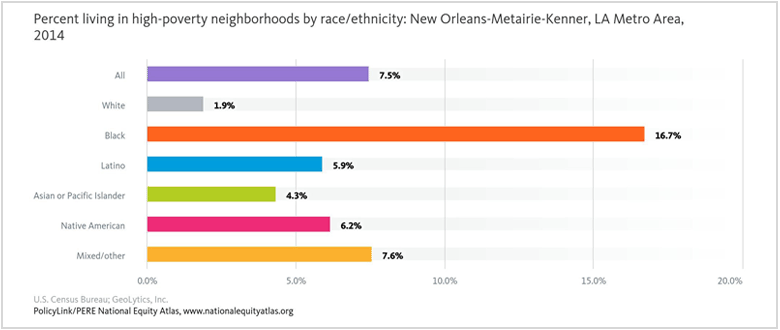Cooperation Jackson’s Kali Akuno on Solidarity, Economic Democracy, and Organizing for the Long Term
By Alexis Stephens
As grassroots groups and community advocates across the country brace for increasingly anti-democratic and authoritarian opposition, organizers in the South bring a wealth of wisdom and experience dealing with such challenges.
America's Tomorrow spoke to Kali Akuno, co-director of Cooperation Jackson, founded in 2013 to promote economic democracy and worker-owned cooperatives in Jackson, Mississippi. Akuno talked about the organization's work and how it has dealt with a series of setbacks and trials, including the passing of Jackson's mayor — longtime activist and organizer Chokwe Lumumba — in 2014, ongoing state threats to local control of land and infrastructure, and the uncertainty of the new presidential administration. He also shared his analysis of the local context in Jackson and offered some advice to grassroots organizations around the country about how to both survive short-term threats and lay the foundation of long-term sustainability.
In the wake of Mayor Chokwe Lumumba's passing and his legacy of Black organizing, what has the landscape looked like for Cooperation Jackson?
The first six months of the [Yarber] administration were somewhat difficult for us. Cooperation Jackson had been tied to and identified with the legacy of Mayor Lumumba and the Malcolm X Grassroots Movement, and I think Mayor Yarber was initially very wary about any engagement with us. But over time we found some ways to collaborate on things that we all saw as mutually beneficial for us and the city.
There have been a number of issues this year where there has been a high level of agreement between our organization and the mayoral administration — primarily the threats that have been coming down from the Republican supermajority at the state level and some very targeted threats against the City of Jackson. One example is the state legislation that is allowing a governor-appointed regional board to take over operational control of the airports in Jackson. A broad, united front came together [to fight that], which included the Coalition of Economic Justice, city council, and our county legislative delegation. I would say the overall legacy of the plans that brought Lumumba into office is very much alive.
In which programs and initiatives are you seeing the most success?
We're seeing success in the development of our three co-ops: Freedom Farms Urban Farming Cooperative, Nubia's Place Café and Catering Cooperative, and Mississippi Waste Alternative, a recycling and composting cooperative. The core membership of each is under the age of 25. There's a youthful willingness to try something new and a healthy optimistic attitude when they encounter people or dynamics that tell them that they can't do something. Our own analysis of why these co-ops are moving faster than others has revealed that youth leadership is a factor. To outside observers, the most concrete measure of success is the actual operation of a co-op — if the farm is able to increase its productive yield, for example. And that's grown each quarter. But young people are also acquiring skills and certifications, and putting in hours. Those are all things we're looking at objectively as measures of our success: how many people we're able to train, recruit, and bring into the process.
Cooperation Jackson is still very much a baby as an organization. In a short period of time, we've been able to build several functioning and emerging cooperatives and to acquire a community center and 20 parcels of land in West Jackson. We have three houses that are the core basis of our housing co-op and emerging eco-village. When Chokwe passed away so suddenly, many of us were in doubt in the first couple of months about where we were going and what might be possible. From that dark place to where we are now, I would argue that we've done fairly well.
What advice would you give to other grassroots economic development organizations that might be facing preemption at the state level over the next two to five years?
Your basic organizing principles don't fundamentally change. In fact, they become even more important than ever before. The first thing is you have to build your own base; and, if you are trying to build a transformative business like the co-ops that we're trying to build, you have to work to communicate your own values to your network very clearly. Outside of building your own base, you have to make connections and links and build allies with other folks who share similar interests. I don't think everything has to be in complete alignment, but I think there's a critical synergy where you have to agree on some things. But don't compromise your mission or settle for short-term, expedient gains. That's a critical piece.
Sometimes we become too fixated on immediate victories and results, and this doesn't really lead us to building strategic allies and strategic relationships in the way that is most helpful. There are not really any shortcuts. A lot of people are counting on — or have built a lot of their strategies and programming around — new technology, particularly social media as a way of reaching people. That's good for mobilizing people, but it's not a tool for organizing people. We have to make that distinction. In order to organize people, you have to build relationships. You have to make sure that you're creating the context and bringing people into situations where they can see each other face to face, to engage in dialogue and exchange about their issues, about their concerns, about their aspirations.
We have to be very intent on rebuilding social solidarity. I think a lot of the angst that is there now — particularly in light of Trump's victory — is based upon a deepening sense of social isolation. Folks feeling that they're more alone, and more exposed, now and more siloed than ever before. But our counter is not to retreat further into small and local. I think our counter is to go deeper, build more connections, reach out more. I think we're over-emphasizing and stressing too much about what's going to happen this first year. That could lead us into a number of traps, as opposed to us digging deep and building the relationships that are necessary, coming up through that process of organizing people, and then developing a program and a vision that will enable us to build, to push back, and to create a whole different set of policies to complement our vision down the road.
Could you say more about your vision for deepening relationships?
At present, our state politics break down fairly consistently along racial lines. But we know that we can make some inroads, particularly with younger, college-educated White folks — and there are about 250,000 to 500,000 of them in the state. We feel that we can and must do a good job recruiting, organizing, and reorienting them in a more left and progressive direction. And if we can just move the bottom end of that number, we change the politics of this state profoundly and we can end the Republican domination of the state. This is something that's practically doable, but you have to be willing to stand back a little bit, look at the long-term view, assess what's really needed, and then develop the strategy to go out and reach those communities and build a relationship with them. And not see everything as lost or totally out of our reach, when it's really not.



